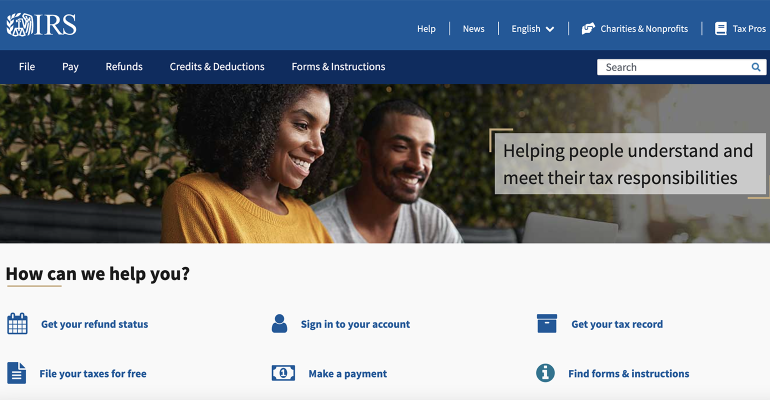As Tax Day looms upon us, the Internal Revenue Service has just issued a new scam alert as part of its Dirty Dozen educational series to raise awareness and protect both taxpayers and tax professionals from common tax scams and schemes. The agency kicks off its annual series to coincide with filing season when fraudulent schemes tend to be most prevalent. In its newest release, the agency warns taxpayers to be wary of scammers purporting to help set up an online account on the IRS’ website.
An online account with the IRS simplifies viewing and filing important tax information, however, it’s also becoming an easy way for identity thieves to gain personal tax and financial information that can then be used to file fraudulent tax returns in a victim’s name and steal their refund. For example, individuals can log in and view their payment history, current balance and copies of select IRS notices.
Scammers reach out purporting that they can help with setting up an account, sometimes posing as IRS employees, and often ask for the taxpayer’s personal information, including address, Social Security number or Individual Taxpayer Identification Number (ITIN) and photo identification. The IRS maintains that creating an online account is straightforward and shouldn’t require unsolicited assistance from third parties.
The IRS or any credible bank or financial institution would never call or email to request such sensitive information for any reason. Although the IRS doesn’t provide victim demographics, presumably the most vulnerable targets are the elderly and those individuals who might not be tech-savvy or in a crunch to self-file returns before the approaching deadline.
IRS Commissioner Danny Werfel explains, “This is another reminder that people should be wary of unexpected reach-outs from the IRS and other financial institutions. Taxpayers should avoid sharing sensitive personal data over the phone, email or social media to protect themselves and avoid getting caught up in these scams.”
Scams Running Rampant
Earlier this year, the IRS also issued a warning for tax professionals to watch out for scammers posing as potential new clients. These seasonal scams correlate with tax season, with cybercriminals targeting accounting groups and tax preparation firms with fake phishing emails. The senders of these emails pretend to be individuals seeking new representation and may appear to contain a potential client’s tax information but instead actually contain a malicious link or attachment. These scammers could collect the tax professional’s email address, password and possibly other information or potentially load malware onto their computer to gain system access. There have even been reported cases in which these new client phishing emails appear to come from a legitimate sender (such as a colleague or friend) or organization because their friend or colleague had their email account credentials stolen.
Tax professionals should also be on alert for scammers who impersonate the IRS, state tax agencies, tax software companies or financial institutions.
As always, the IRS encourages individuals to report any potential tax scams or fraud.

